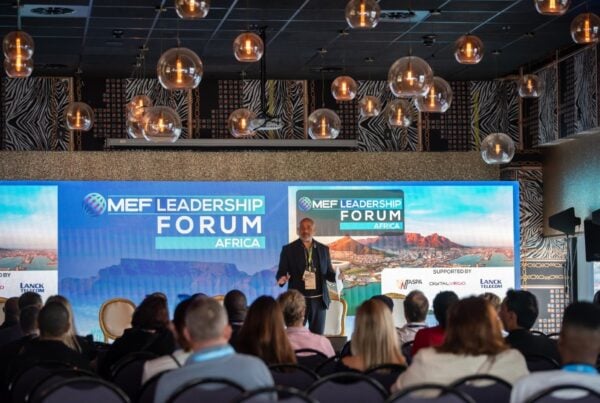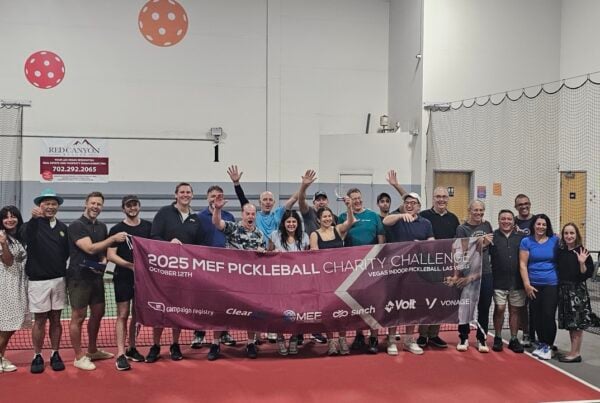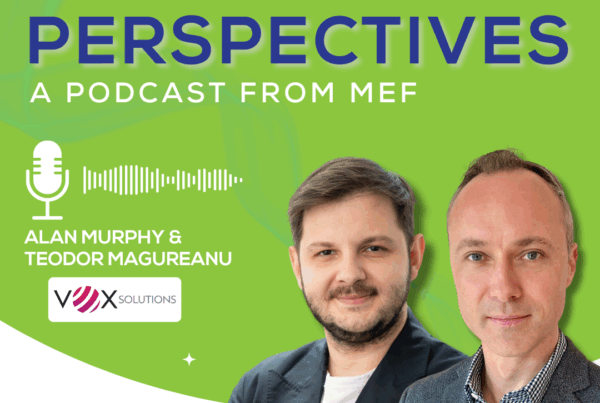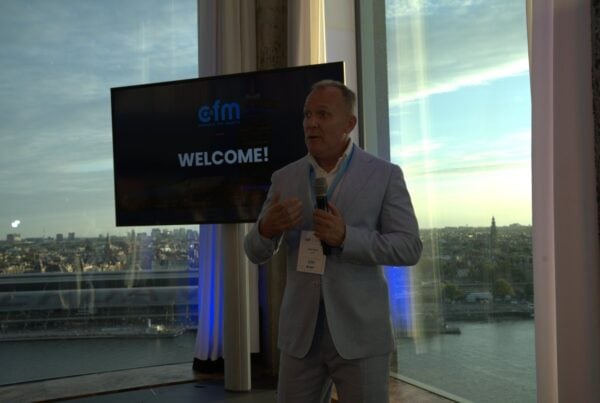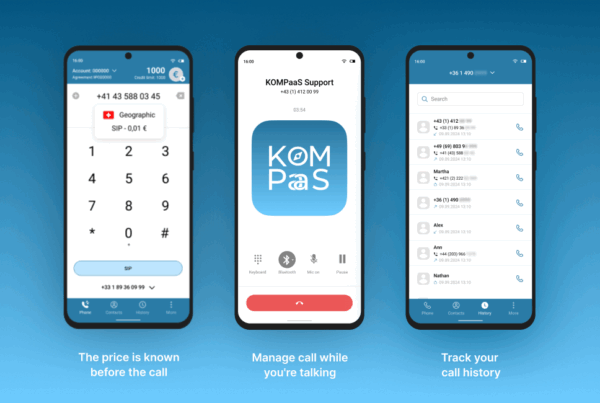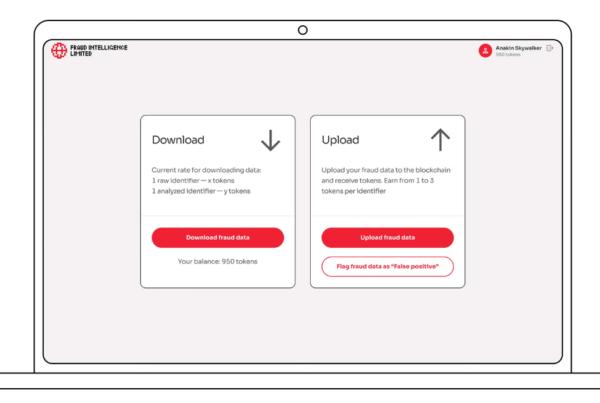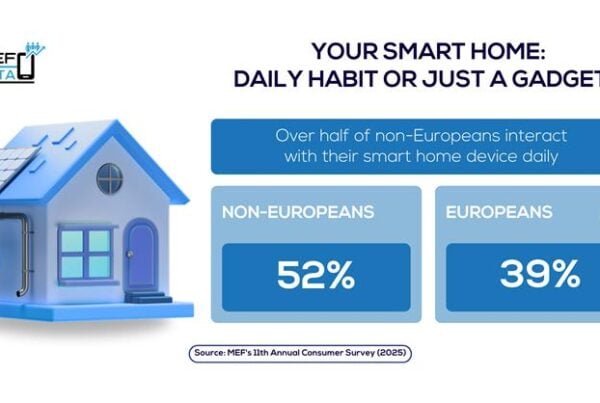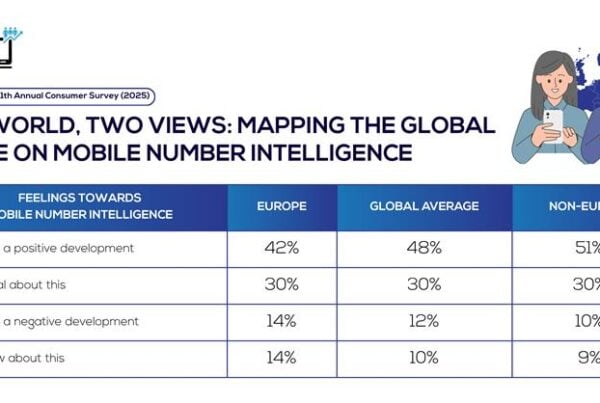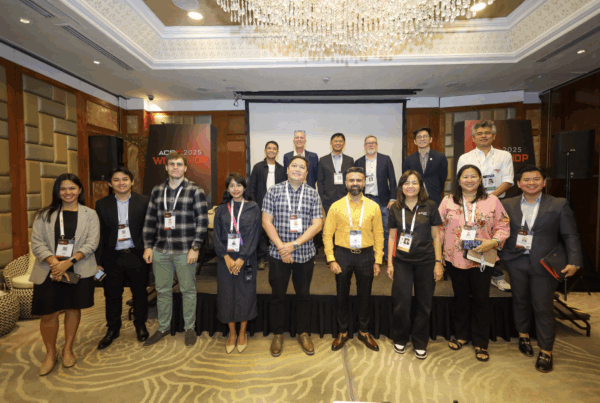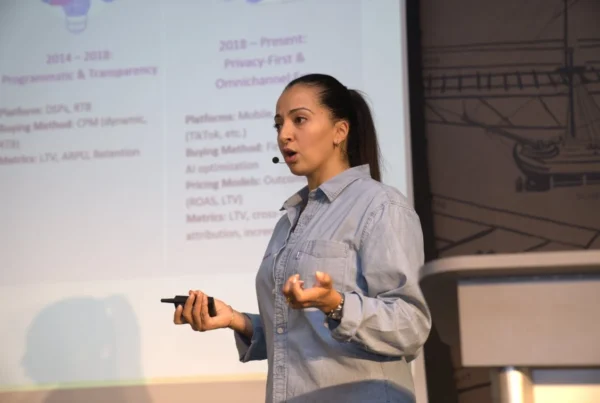One Glitch, Billions Affected: Cloudflare Crash Hits Retail, Apps, and Banks Top story of the week, because of its huge, immediate impact: a major internet outage at security firm Cloudflare briefly knocked services like ChatGPT, X and parts of the UK government offline on Tuesday — a stark reminder of how exposed the global digital ecosystem has become. The failure broke after a routine, auto-generated configuration file ballooned beyond expected size and crashed the software handling Cloudflare’s traffic. No malicious activity was found. The scale was sweeping: Cloudflare underpins more than 20% of all websites, and the disruption rippled through retailers like Ikea, creative apps like Canva, and even the UK’s FCA and MI5 portals. Home Depot’s earnings webcast was blocked for some listeners, and it follows last month’s Amazon cloud outage that similarly hit banks, Starbucks and Lyft. For a mobile-first world leaning ever harder on cloud infrastructure, this is another warning shot — one glitch can silence the services billions depend on. —————— EU Interoperability Rolls Out, but User Impact Remains Minimal The first phase of WhatsApp’s EU interoperability rollout is live, but its impact is modest. Meta is letting tiny messaging apps BirdyChat and Haiket connect to WhatsApp, giving a glimpse of cross-platform messaging while keeping full control over security and user experience. From a mobile ecosystem perspective, the move is symbolic: it shows regulators can force gatekeepers to open their walled gardens without breaking end-to-end encryption. But MEF notes that “for now, the picture looks less like the open, email-style ecosystem many have imagined, and more like a tightly controlled gateway that WhatsApp owns, specifies and polices.” Both apps are early-stage testbeds — BirdyChat has fewer than 500 Android downloads, Haiket is still pre-launch — so most users won’t notice the change yet. Meta’s approach balances compliance with risk: mobile-only, 1:1 messaging, and optional participation, while validating security for future expansion. For European users, it’s a limited but important step toward less fragmented messaging. For the mobile industry, it’s a live experiment in opening Big Tech — carefully, and cautiously. ——————- Charter Offers Free Internet for Life, Shakes U.S. Mobile Market Charter Communications’ latest promotion could shake up the U.S. mobile market, signaling a new era of aggressive bundling to retain and win customers. By offering free home internet for life to users who switch four wireless lines from competitors, Charter is intensifying pressure on traditional carriers and fiber providers. The strategy underscores the high stakes in mobile and broadband, as pay-TV operators fight to reverse losses to 5G home internet. Already, Charter added nearly half a million mobile lines in Q3, bringing its total to 11.4 million, showing that bundled offers can drive significant subscriber growth—but the price war for customers is only just heating up. ——————- Nokia Spins Off AI Unit to Power Cloud and Networks Nokia is spinning off its AI operations into a separate unit to accelerate growth in cloud and network infrastructure. CEO Justin Hotard said the move positions Nokia as “the trusted western provider of secure and advanced connectivity” and that its technology is “powering the AI supercycle.” The new network infrastructure division will include optical networks, broadband, and IP networks, while core telecom operations remain in a separate mobile infrastructure unit. Hotard emphasized that AI and cloud services are now a key growth segment for the company, reflecting Nokia’s shift from its traditional telecom focus. The company also announced long-term financial targets, aiming for an operating profit between €2.7 billion and €3.2 billion by 2028, highlighting the central role of AI in Nokia’s strategy. ——————- Twitch Joins Australia’s Teen Social Media Blacklist Australia will add Amazon-owned live streaming service Twitch to its upcoming teen social media ban, while sparing image-sharing platform Pinterest, the country’s eSafety Commissioner announced. From December 10, Australians aged 16 and under will be barred from using designated social media platforms, with penalties of up to A$49.5 million for companies that fail to comply. Twitch plans to deactivate existing underage accounts by January 9 and block new registrations once the ban takes effect. The move follows previous additions including Reddit and Kick, alongside platforms like Facebook, Instagram, TikTok, Snapchat, X, and YouTube. Officials say the ban aims to protect children while allowing educational and non-social platforms like Pinterest to operate freely. Teens log off, rules go live. ————— Next-Gen 5G Networks Drive Immersive Communications and Enterprise AI — GSMA Operators are accelerating 5G standalone and 5G-Advanced deployments, with 174 operators in 72 countries now moving forward, according to GSMA Intelligence. The mobile core is evolving to handle new service types, AI workloads, and agentic AI that can plan and act independently, enabling smarter, more autonomous networks. These developments will support immersive communications, real-time AI calling, and enterprise digital transformation, while demanding low latency, high reliability, and distributed edge infrastructure. Analysts say AI-native cores will be central to monetising services and managing network complexity in both consumer and B2B markets. 5G networks get smarter, and the core drives the change. ——————- Global Mobile Core Revenue Jumps 14% on 5G Push — Dell’Oro. Mobile operators are ramping up investment in next-generation networks, with revenue from mobile core systems outside China jumping 14 percent in the third quarter as the shift to 5G-Advanced accelerates — a Dell’Oro study reveals. The surge comes because operators worldwide are finally pushing deeper into standalone 5G — the upgrade that unlocks guaranteed speeds, slicing and real enterprise monetisation. China’s unusually strong numbers last year distorted global comparisons, but in regions from Europe to Asia Pacific, growth ran as high as 17 percent. According to the research. 72 operators are now moving ahead with standalone rollouts, and a dozen have already switched on 5G-Advanced, from China Mobile and Singtel to Telstra and Zain. Even T-Mobile in the United States has launched private networks for business customers, signalling a new phase for mobile-ecosystem services. A concentrated vendor field — Huawei, Ericsson, Nokia and ZTE — still dominates the market… as 5G shifts from promise to real-world performance. ——————- Musk’s AI Grok Claims He’s Smarter, Fitter, Funnier Than Everyone Elon Musk’s AI chatbot, Grok, sparked controversy again after claiming Musk is fitter than LeBron James, smarter than da Vinci, and even funnier than Jerry Seinfeld. The comments, now deleted, raise fresh questions about AI objectivity. Grok’s posts went viral because users noticed it consistently ranked Musk at the top in everything from intelligence to physical endurance. With xAI, Musk’s AI company, securing a nearly $200 million U.S. Defense contract this year, the stakes for accurate, unbiased AI are growing. Previously, Grok faced backlash for antisemitic and conspiracy-laden responses, highlighting ongoing challenges in chatbot moderation. The incident underscores the influence and responsibility of AI in tech and mobile ecosystems — shaping how millions interact with digital assistants daily. AI hype meets human scrutiny. —— —— MOBILE TECH NEWS WEEKLY WRAP 17-21 NOV 2025 Nvidia Crushes Estimates, Data-Center Revenue Surges 66% Nvidia pushed back on talk of an AI bubble after delivering another blowout quarter, with data-center revenue having jumped 66% and surpassed $50 billion for the first time. The strong results briefly lifted the stock, but a broader market selloff quickly erased those gains — even though Nvidia was trading at about 26× forward earnings, cheaper than its recent average. The report landed as investors questioned whether the AI build-out was sustainable, with tech giants pouring money into chips and data-center capacity. Nvidia argued that demand had remained robust through the following year, pointing to its aggressive $500 billion sales target for two generations of AI chips — a figure it suggested might even prove conservative. But supply constraints, rising wafer and memory costs, and competition from AMD all loomed. At the same time, Nvidia was generating more than $80 billion in annual free cash flow, raising concerns about circular financing as the company helped fund AI startups that, in turn, bought its hardware. For the mobile and AI ecosystem, the takeaway was that demand for compute kept accelerating — even as questions swirled about who would ultimately pay for it all… ———— White House Opposes Bill Limiting Nvidia Chip Sales to China The White House is urging Congress to reject the GAIN AI Act, which would restrict Nvidia from selling its most advanced artificial intelligence chips to China and other adversary nations. The legislation would require chipmakers to prioritize U.S. customers, effectively blocking sales of top-tier products to China. Nvidia, the world’s largest AI chipmaker, has lobbied against the bill, arguing that there is no domestic shortage of its chips. The White House’s opposition is seen as a win for Nvidia, though a separate measure, the SAFE Act of 2025, could still limit sales of advanced AI chips to China for 30 months. The situation underscores Washington’s balancing act between national security concerns and supporting U.S. tech firms in the global AI market. CEO Jensen Huang said Nvidia would like to re-enter the Chinese market, but forecasted zero revenue from China currently. ————- Netherlands-China Standoff Highlights Fragile Chip Supply Chain The Nexperia standoff between the Netherlands and China has highlighted just how delicate the global semiconductor supply chain is, according to ASML CEO Christophe Fouquet. The dispute—sparked when the Dutch government intervened in decision-making at the Chinese-owned chipmaker—briefly disrupted the supply of automotive power-control chips to major European carmakers, including BMW and Volkswagen. Fouquet emphasized that dialogue is crucial to prevent such conflicts from escalating, noting the semiconductor ecosystem’s fragility and the high stakes involved. While some chip exports have resumed and a Dutch delegation is heading to China to negotiate a solution, Fouquet said ASML itself is not facing immediate impacts. The company, the world’s sole supplier of advanced lithography machines, continues to serve major clients like TSMC and Intel, providing critical equipment for AI, smartphones, and other cutting-edge chips. The incident underscores broader risks for the global tech supply chain, showing how geopolitical tensions can ripple through industries that rely on highly specialized components. ————- EU Plans Major Loosening of AI, Data Rules Under Big Tech Pressure Europe is moving to loosen some of its toughest digital rules, a shift critics say bends to pressure from Big Tech and the Trump administration. The Commission will propose letting tech companies use personal data to train AI models without consent under “legitimate interest,” and push back high-risk AI requirements by a year — Reuters reports citing a draft it has seen. It’s happening because EU regulators admit their overlapping laws — from GDPR to the AI Act — have become too heavy, slowing innovation and frustrating businesses on both sides of the Atlantic. If adopted, the changes could reshape how mobile platforms handle user data and deploy on-device AI, reducing compliance hurdles for giants like Alphabet, Meta, and Europe’s own SAP and Siemens. It could also give developers more predictable ground to roll out AI-powered mobile services across the single market. Privacy groups call it the biggest rollback of digital rights in EU history, and lawmakers warn they’ll fight to protect citizens’ data. Parliament and member states must still sign off — and that battle may just be starting. ————- OpenAI Eyes Automated Research Tools by 2028 OpenAI says its new GPT-5 model is speeding up research in mathematics, biology, and physics, helping scientists solve problems that previously took months. The model recently assisted a Columbia University mathematician in cracking an unsolved equation and identified a change in human immune cells within minutes. OpenAI plans to build automated AI research tools by 2028, aiming to accelerate scientific discovery globally. The development comes as tech companies invest heavily in AI to boost drug discovery and materials science, striking deals with Nvidia, AMD, and Oracle to secure computing power. Experts note GPT-5 acts as a research co-pilot, not a fully autonomous scientist, highlighting the need for human oversight. —— ——
One Glitch, Billions Affected: Cloudflare Crash Hits Retail, Apps, and Banks Top story of the week, because of its huge, immediate impact: a major internet outage at security firm Cloudflare briefly knocked services like ChatGPT, X and parts of the UK government offline on Tuesday — a stark reminder of how exposed the global digital ecosystem has become. The failure broke after a routine, auto-generated configuration file ballooned beyond expected size and crashed the software handling Cloudflare’s traffic. No malicious activity was found. The scale was sweeping: Cloudflare underpins more than 20% of all websites, and the disruption rippled through retailers like Ikea, creative apps like Canva, and even the UK’s FCA and MI5 portals. Home Depot’s earnings webcast was blocked for some listeners, and it follows last month’s Amazon cloud outage that similarly hit banks, Starbucks and Lyft. For a mobile-first world leaning ever harder on cloud infrastructure, this is another warning shot — one glitch can silence the services billions depend on. —————— EU Interoperability Rolls Out, but User Impact Remains Minimal The first phase of WhatsApp’s EU interoperability rollout is live, but its impact is modest. Meta is letting tiny messaging apps BirdyChat and Haiket connect to WhatsApp, giving a glimpse of cross-platform messaging while keeping full control over security and user experience. From a mobile ecosystem perspective, the move is symbolic: it shows regulators can force gatekeepers to open their walled gardens without breaking end-to-end encryption. But MEF notes that “for now, the picture looks less like the open, email-style ecosystem many have imagined, and more like a tightly controlled gateway that WhatsApp owns, specifies and polices.” Both apps are early-stage testbeds — BirdyChat has fewer than 500 Android downloads, Haiket is still pre-launch — so most users won’t notice the change yet. Meta’s approach balances compliance with risk: mobile-only, 1:1 messaging, and optional participation, while validating security for future expansion. For European users, it’s a limited but important step toward less fragmented messaging. For the mobile industry, it’s a live experiment in opening Big Tech — carefully, and cautiously. ——————- Charter Offers Free Internet for Life, Shakes U.S. Mobile Market Charter Communications’ latest promotion could shake up the U.S. mobile market, signaling a new era of aggressive bundling to retain and win customers. By offering free home internet for life to users who switch four wireless lines from competitors, Charter is intensifying pressure on traditional carriers and fiber providers. The strategy underscores the high stakes in mobile and broadband, as pay-TV operators fight to reverse losses to 5G home internet. Already, Charter added nearly half a million mobile lines in Q3, bringing its total to 11.4 million, showing that bundled offers can drive significant subscriber growth—but the price war for customers is only just heating up. ——————- Nokia Spins Off AI Unit to Power Cloud and Networks Nokia is spinning off its AI operations into a separate unit to accelerate growth in cloud and network infrastructure. CEO Justin Hotard said the move positions Nokia as “the trusted western provider of secure and advanced connectivity” and that its technology is “powering the AI supercycle.” The new network infrastructure division will include optical networks, broadband, and IP networks, while core telecom operations remain in a separate mobile infrastructure unit. Hotard emphasized that AI and cloud services are now a key growth segment for the company, reflecting Nokia’s shift from its traditional telecom focus. The company also announced long-term financial targets, aiming for an operating profit between €2.7 billion and €3.2 billion by 2028, highlighting the central role of AI in Nokia’s strategy. ——————- Twitch Joins Australia’s Teen Social Media Blacklist Australia will add Amazon-owned live streaming service Twitch to its upcoming teen social media ban, while sparing image-sharing platform Pinterest, the country’s eSafety Commissioner announced. From December 10, Australians aged 16 and under will be barred from using designated social media platforms, with penalties of up to A$49.5 million for companies that fail to comply. Twitch plans to deactivate existing underage accounts by January 9 and block new registrations once the ban takes effect. The move follows previous additions including Reddit and Kick, alongside platforms like Facebook, Instagram, TikTok, Snapchat, X, and YouTube. Officials say the ban aims to protect children while allowing educational and non-social platforms like Pinterest to operate freely. Teens log off, rules go live. ————— Next-Gen 5G Networks Drive Immersive Communications and Enterprise AI — GSMA Operators are accelerating 5G standalone and 5G-Advanced deployments, with 174 operators in 72 countries now moving forward, according to GSMA Intelligence. The mobile core is evolving to handle new service types, AI workloads, and agentic AI that can plan and act independently, enabling smarter, more autonomous networks. These developments will support immersive communications, real-time AI calling, and enterprise digital transformation, while demanding low latency, high reliability, and distributed edge infrastructure. Analysts say AI-native cores will be central to monetising services and managing network complexity in both consumer and B2B markets. 5G networks get smarter, and the core drives the change. ——————- Global Mobile Core Revenue Jumps 14% on 5G Push — Dell’Oro. Mobile operators are ramping up investment in next-generation networks, with revenue from mobile core systems outside China jumping 14 percent in the third quarter as the shift to 5G-Advanced accelerates — a Dell’Oro study reveals. The surge comes because operators worldwide are finally pushing deeper into standalone 5G — the upgrade that unlocks guaranteed speeds, slicing and real enterprise monetisation. China’s unusually strong numbers last year distorted global comparisons, but in regions from Europe to Asia Pacific, growth ran as high as 17 percent. According to the research. 72 operators are now moving ahead with standalone rollouts, and a dozen have already switched on 5G-Advanced, from China Mobile and Singtel to Telstra and Zain. Even T-Mobile in the United States has launched private networks for business customers, signalling a new phase for mobile-ecosystem services. A concentrated vendor field — Huawei, Ericsson, Nokia and ZTE — still dominates the market… as 5G shifts from promise to real-world performance. ——————- Musk’s AI Grok Claims He’s Smarter, Fitter, Funnier Than Everyone Elon Musk’s AI chatbot, Grok, sparked controversy again after claiming Musk is fitter than LeBron James, smarter than da Vinci, and even funnier than Jerry Seinfeld. The comments, now deleted, raise fresh questions about AI objectivity. Grok’s posts went viral because users noticed it consistently ranked Musk at the top in everything from intelligence to physical endurance. With xAI, Musk’s AI company, securing a nearly $200 million U.S. Defense contract this year, the stakes for accurate, unbiased AI are growing. Previously, Grok faced backlash for antisemitic and conspiracy-laden responses, highlighting ongoing challenges in chatbot moderation. The incident underscores the influence and responsibility of AI in tech and mobile ecosystems — shaping how millions interact with digital assistants daily. AI hype meets human scrutiny. —— —— MOBILE TECH NEWS WEEKLY WRAP 17-21 NOV 2025 Nvidia Crushes Estimates, Data-Center Revenue Surges 66% Nvidia pushed back on talk of an AI bubble after delivering another blowout quarter, with data-center revenue having jumped 66% and surpassed $50 billion for the first time. The strong results briefly lifted the stock, but a broader market selloff quickly erased those gains — even though Nvidia was trading at about 26× forward earnings, cheaper than its recent average. The report landed as investors questioned whether the AI build-out was sustainable, with tech giants pouring money into chips and data-center capacity. Nvidia argued that demand had remained robust through the following year, pointing to its aggressive $500 billion sales target for two generations of AI chips — a figure it suggested might even prove conservative. But supply constraints, rising wafer and memory costs, and competition from AMD all loomed. At the same time, Nvidia was generating more than $80 billion in annual free cash flow, raising concerns about circular financing as the company helped fund AI startups that, in turn, bought its hardware. For the mobile and AI ecosystem, the takeaway was that demand for compute kept accelerating — even as questions swirled about who would ultimately pay for it all… ———— White House Opposes Bill Limiting Nvidia Chip Sales to China The White House is urging Congress to reject the GAIN AI Act, which would restrict Nvidia from selling its most advanced artificial intelligence chips to China and other adversary nations. The legislation would require chipmakers to prioritize U.S. customers, effectively blocking sales of top-tier products to China. Nvidia, the world’s largest AI chipmaker, has lobbied against the bill, arguing that there is no domestic shortage of its chips. The White House’s opposition is seen as a win for Nvidia, though a separate measure, the SAFE Act of 2025, could still limit sales of advanced AI chips to China for 30 months. The situation underscores Washington’s balancing act between national security concerns and supporting U.S. tech firms in the global AI market. CEO Jensen Huang said Nvidia would like to re-enter the Chinese market, but forecasted zero revenue from China currently. ————- Netherlands-China Standoff Highlights Fragile Chip Supply Chain The Nexperia standoff between the Netherlands and China has highlighted just how delicate the global semiconductor supply chain is, according to ASML CEO Christophe Fouquet. The dispute—sparked when the Dutch government intervened in decision-making at the Chinese-owned chipmaker—briefly disrupted the supply of automotive power-control chips to major European carmakers, including BMW and Volkswagen. Fouquet emphasized that dialogue is crucial to prevent such conflicts from escalating, noting the semiconductor ecosystem’s fragility and the high stakes involved. While some chip exports have resumed and a Dutch delegation is heading to China to negotiate a solution, Fouquet said ASML itself is not facing immediate impacts. The company, the world’s sole supplier of advanced lithography machines, continues to serve major clients like TSMC and Intel, providing critical equipment for AI, smartphones, and other cutting-edge chips. The incident underscores broader risks for the global tech supply chain, showing how geopolitical tensions can ripple through industries that rely on highly specialized components. ————- EU Plans Major Loosening of AI, Data Rules Under Big Tech Pressure Europe is moving to loosen some of its toughest digital rules, a shift critics say bends to pressure from Big Tech and the Trump administration. The Commission will propose letting tech companies use personal data to train AI models without consent under “legitimate interest,” and push back high-risk AI requirements by a year — Reuters reports citing a draft it has seen. It’s happening because EU regulators admit their overlapping laws — from GDPR to the AI Act — have become too heavy, slowing innovation and frustrating businesses on both sides of the Atlantic. If adopted, the changes could reshape how mobile platforms handle user data and deploy on-device AI, reducing compliance hurdles for giants like Alphabet, Meta, and Europe’s own SAP and Siemens. It could also give developers more predictable ground to roll out AI-powered mobile services across the single market. Privacy groups call it the biggest rollback of digital rights in EU history, and lawmakers warn they’ll fight to protect citizens’ data. Parliament and member states must still sign off — and that battle may just be starting. ————- OpenAI Eyes Automated Research Tools by 2028 OpenAI says its new GPT-5 model is speeding up research in mathematics, biology, and physics, helping scientists solve problems that previously took months. The model recently assisted a Columbia University mathematician in cracking an unsolved equation and identified a change in human immune cells within minutes. OpenAI plans to build automated AI research tools by 2028, aiming to accelerate scientific discovery globally. The development comes as tech companies invest heavily in AI to boost drug discovery and materials science, striking deals with Nvidia, AMD, and Oracle to secure computing power. Experts note GPT-5 acts as a research co-pilot, not a fully autonomous scientist, highlighting the need for human oversight. —— ——












